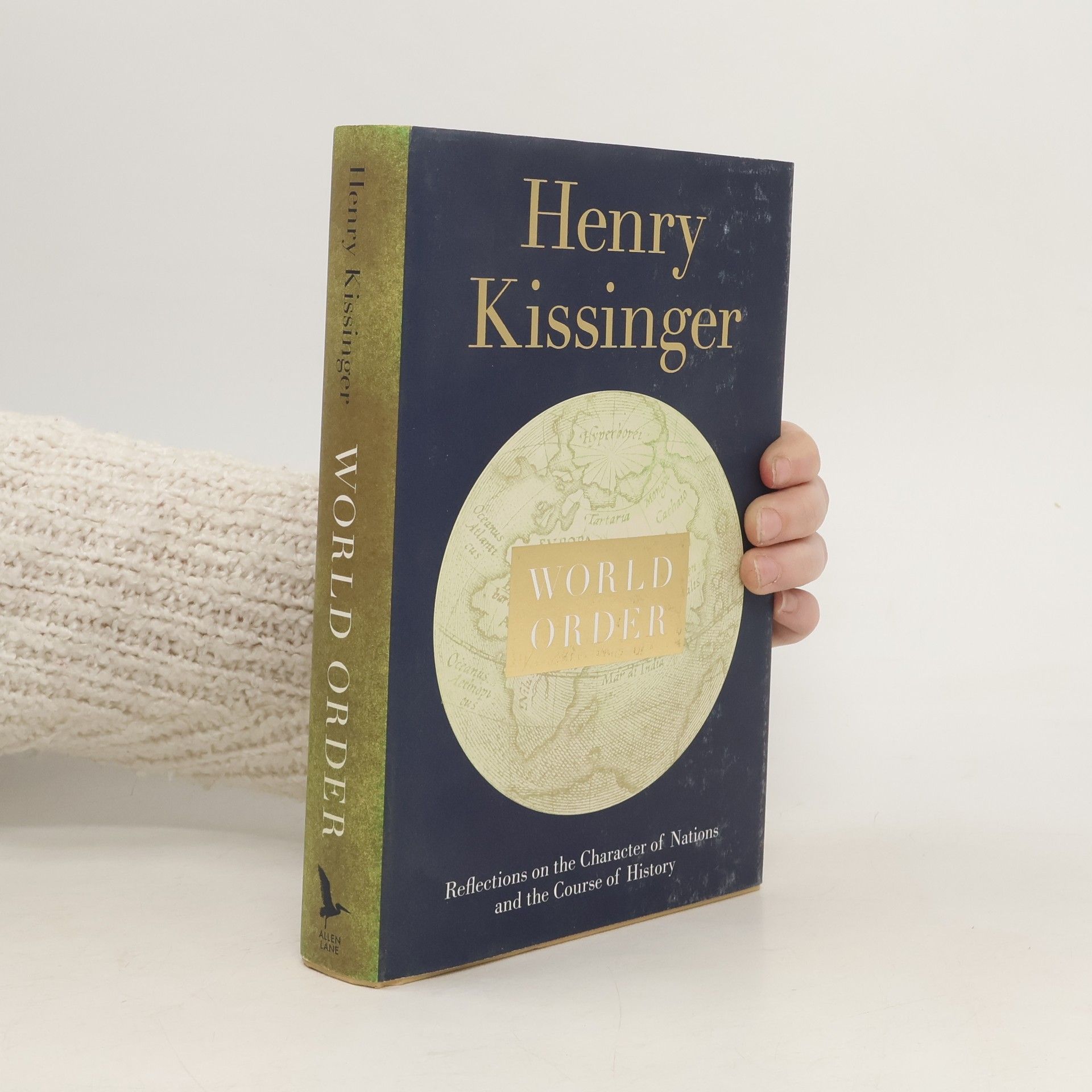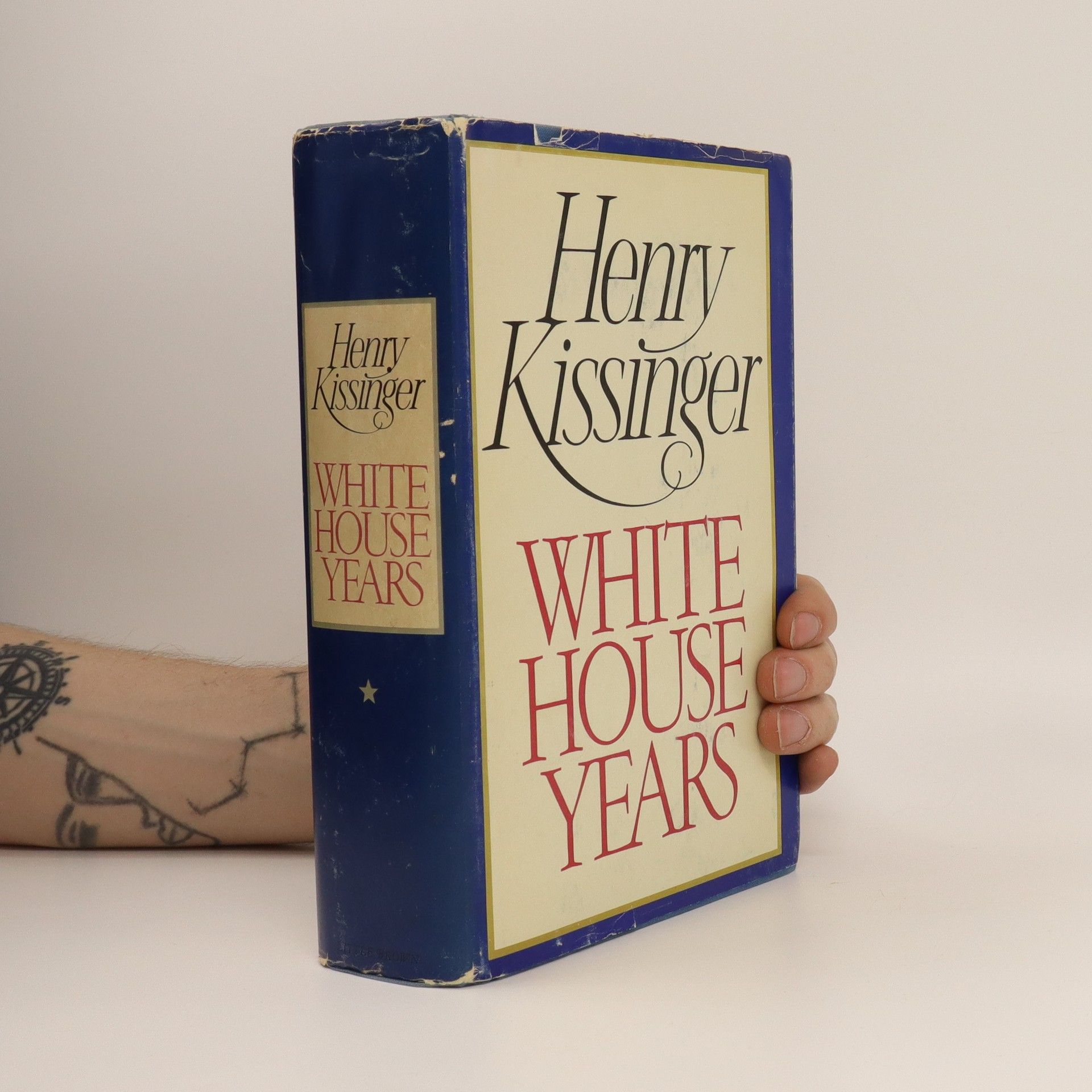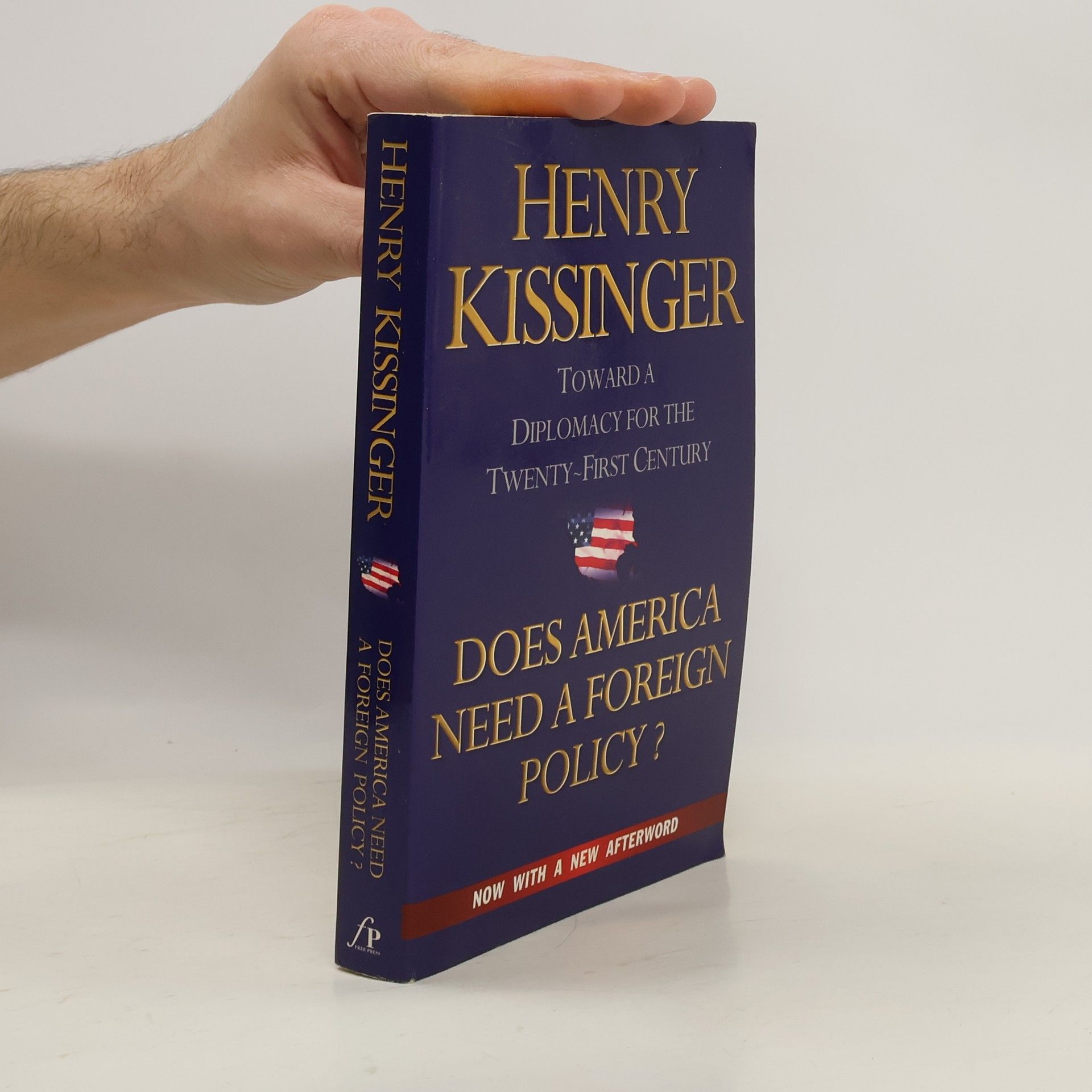Světoznámý politolog, historik, poradce pěti amerických prezidentů a laureát Nobelovy ceny míru detailně analyzuje kariéru šesti legendárních státníků Konrada Adenauera, Charlese de Gaulla, Richarda Nixona, Anwara Sadata, Lee Kuan Yewa a Margaret Thatcherové. Všichni se zformovali v období, kdy se v Evropě hroutily zavedené instituce, koloniální struktury ustupovaly nezávislým státům v Asii a Africe a ze zbytků starého mezinárodního řádu bylo třeba vytvořit nový. Kissinger všechny vybrané vůdce osobně poznal a označil je za skutečně výjimečné osobnosti. Vychází k autorovým stým narozeninám.
Henry Kissinger Knihy
Tento autor bol kľúčovou postavou v americkej zahraničnej politike, ktorý presadzoval politiku Realpolitik. Jeho prístup k diplomacii, najmä v Nixonovej a Fordovej administratíve, zanechal nezmazateľnú stopu. Vytvoril politiku détente, ktorá formovala medzinárodné vzťahy po mnohé roky. Jeho vplyv bol taký významný, že vyvolal silné reakcie ako u ľavicového, tak aj u pravicového krídla politického spektra.

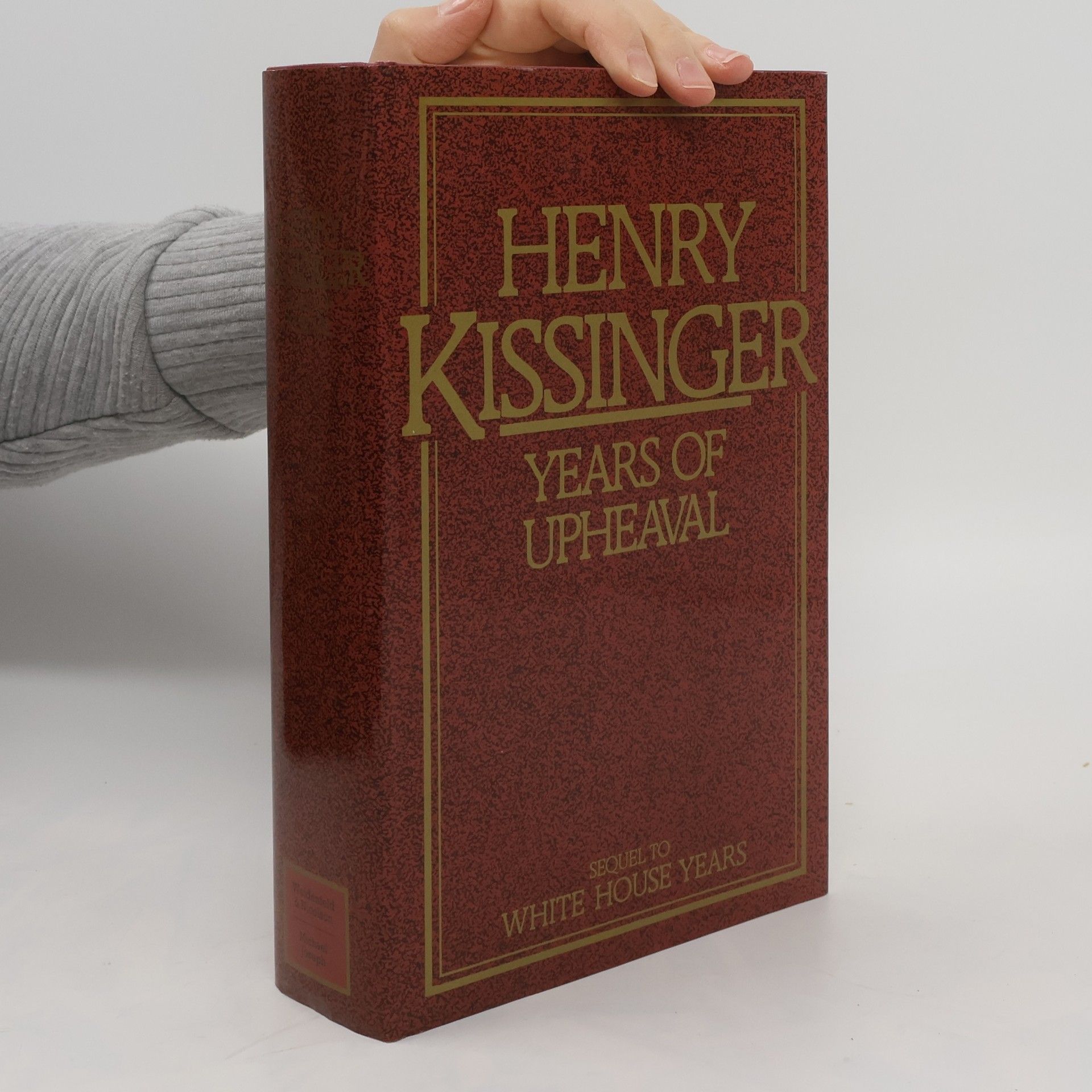


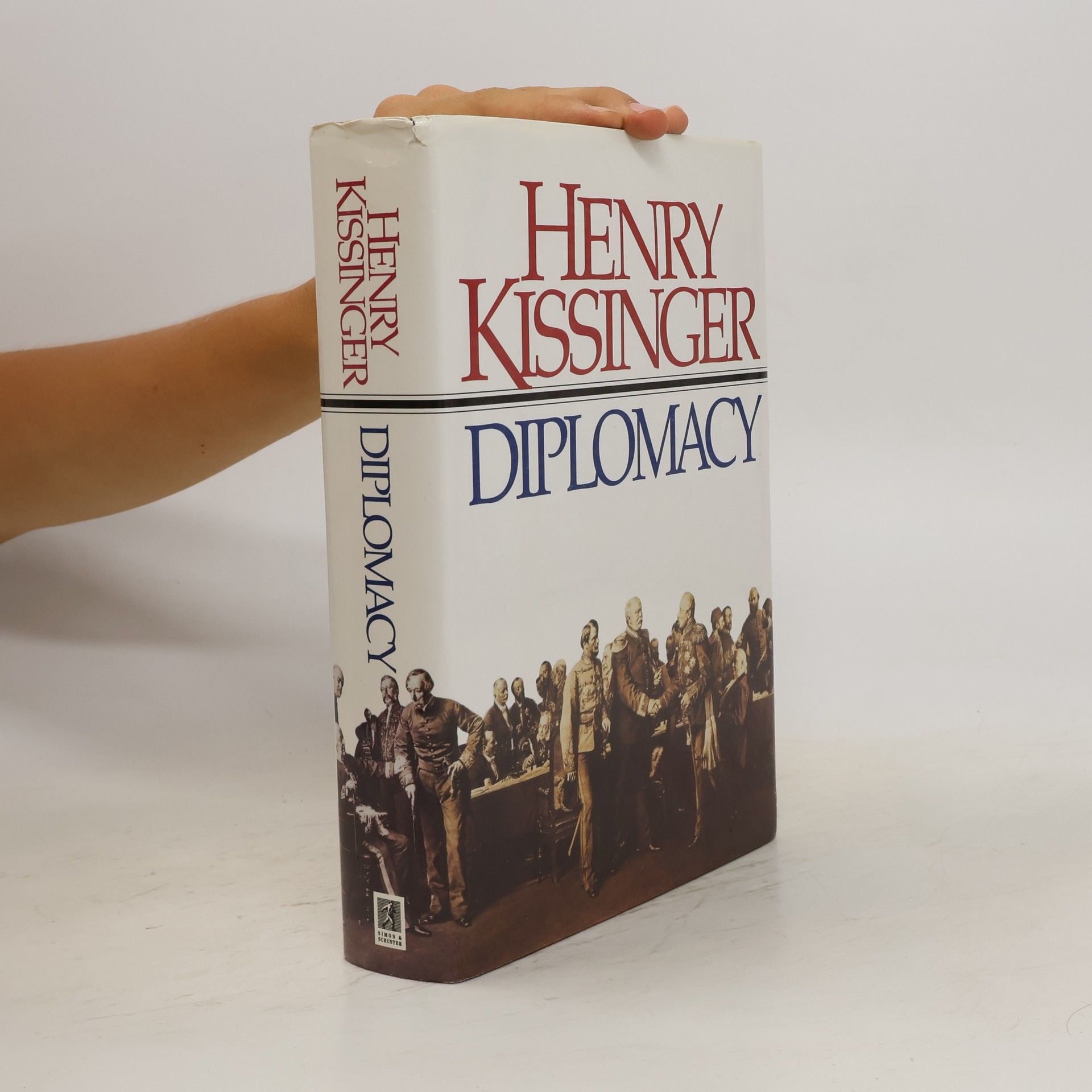
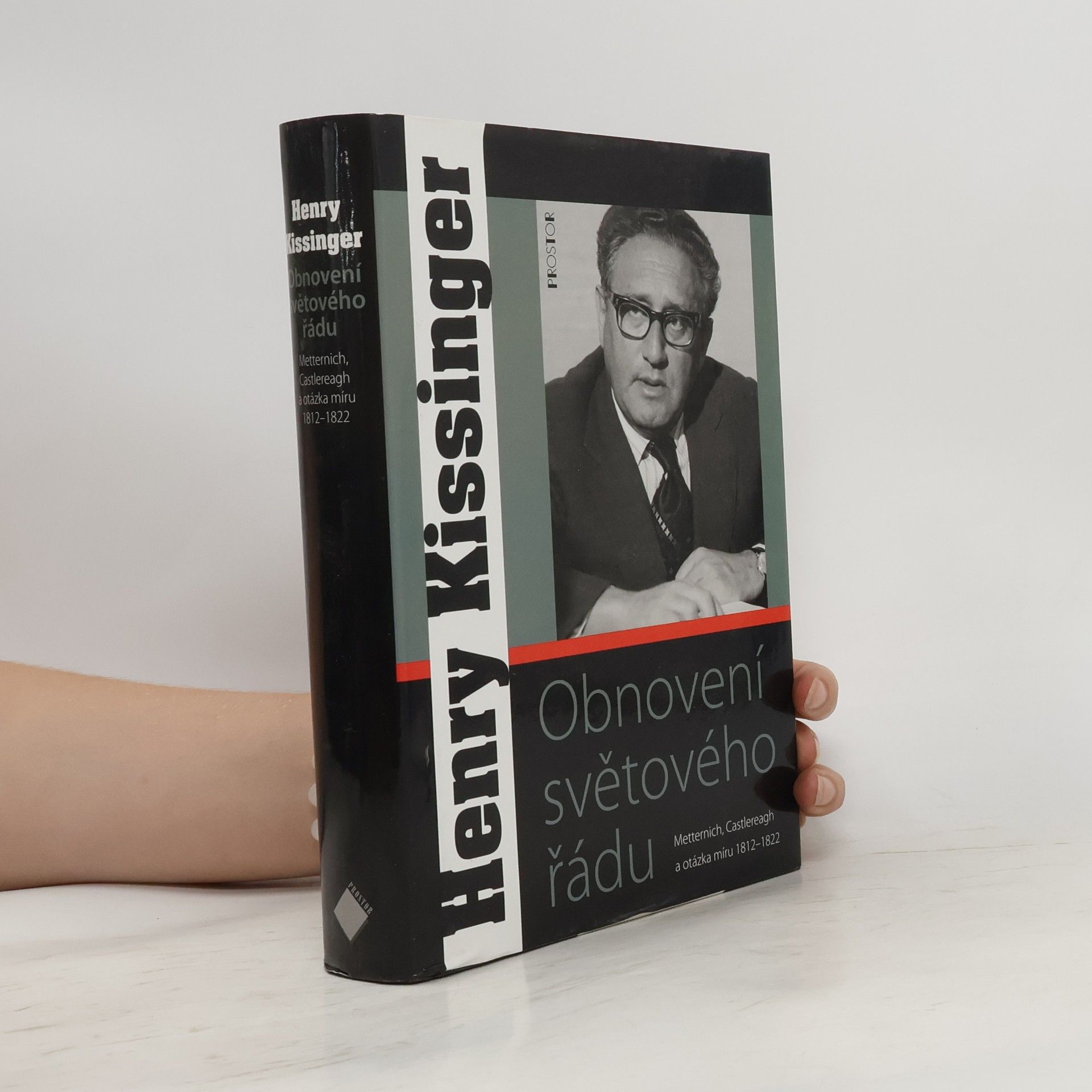

Obnovení světového řádu. Metternich, Castlereagh a potíže s mírem 1812-1822.
- 413 stránok
- 15 hodin čítania
Ve své první práci o dějinách mezinárodní politiky z roku 1957 se Kissinger zabývá diplomatickou historií Evropy od Napoleonovy porážky v Rusku přes sérii mezinárodních kongresů v letech 1814-1822 až po protiturecké povstání v Řecku 1822, které definitivně ukončilo již několik let slábnoucí britskou participaci na evropské politice. Historická fakta jsou pro Kissingera především podnětem k přemýšlení, jehož cílem je porozumět událostem i jejich protagonistům. Autor vyniká mimořádnou schopností psychologické drobnokresby, ať už píše o Metternichovi či Castlereaghovi, anebo se zabývá ruským carem Alexandrem či poraženým a kompromisu neschopným Napoleonem.
Diplomacy
- 912 stránok
- 32 hodin čítania
In this monumental work, Henry Kissinger explores the essence of diplomacy, offering a sweeping historical overview alongside personal accounts of his negotiations with global leaders. He examines how the art of diplomacy and the balance of power have shaped the world, highlighting the unique foreign policy pursued by Americans, influenced by their size, isolation, idealism, and skepticism toward the Old World. Covering over three centuries, from Cardinal Richelieu to the contemporary "New World Order," Kissinger illustrates the evolution of modern diplomacy through the trials of warfare and peacemaking, emphasizing America's often perilous refusal to learn from history. His intimate portraits of leaders like de Gaulle, Nixon, Chou En-lai, Mao Tse-tung, Reagan, and Gorbachev provide a rare glimpse into high-level diplomacy, enriched by detailed observations of secret negotiations and statesmanship that have impacted global affairs. Analyzing national diplomatic styles, he reveals how different societies shape their foreign policies, particularly noting America's distinct idealistic approach. With insights drawn from his own experiences and candid accounts of pivotal diplomatic initiatives, Kissinger's work is essential reading for anyone interested in understanding America's role on the world stage.
Kissinger podle Kissingera
- 240 stránok
- 9 hodin čítania
Úvahy o diplomacii, strategickém výhledu a umění vést. Legendární diplomat Henry Kissinger, poradce amerických prezidentů Richarda Nixona a Geralda Forda, stál uprostřed nejdůležitějších jednání studené války. Je rovněž autorem mnoha rozsáhlých publikací o mezinárodních vztazích, vnichž precizně rozebírá detaily a analyzuje relevantní historické paralely. Kniha Kissinger podle Kissingera je jiná. Je to záznam rozhovorů, které s Kissingerem vedl jeho blízký spolupracovník Winston Lord. Ze vzpomínání obou veteránů vzniklo koncentrované a názorné svědectví o umění diplomacie. Znalci Kissingerova díla ocení osobní zkušenost z hvězdných hodin americké politiky, ostatním kniha poslouží jako čtivý úvod do Kissingerova brilantního uvažování.
Henry Kissinger, a prominent American diplomat and Nobel Peace Prize winner, is a key figure in contemporary history and American foreign policy. The final volume of his memoirs serves as both a historical document and a compelling narrative filled with insights and candor. It begins with Nixon's resignation, offering Kissinger's assessment of Nixon's complex personality and the tragedy that marked his presidency, which briefly elevated Kissinger to immense power. The narrative then explores Gerald Ford's administration, portraying him as a man of decency and courage who guided the nation through renewal. Kissinger reflects on the painful U.S. withdrawal from Vietnam amidst a hostile Congress and a weakened intelligence community, presenting a vivid account of crises such as the fall of Cambodia and South Vietnam, the Mayaguez incident, and tensions between Greece and Turkey. He details pivotal moments in American foreign policy during Ford's era, including his shuttle diplomacy that fostered peace between Egypt and Israel, the Vladivostok meeting with Brezhnev on nuclear limitations, and the complex U.S.-China dialogue. The memoir also covers Kissinger's initiatives in Africa and U.S. policies in the Americas, offering candid portraits of global leaders, from Mao Zedong to Brezhnev. This work combines scholarship, wisdom, and firsthand experience, making it a profound exploration of Cold War history and diplomacy, solidifyi
In Years of Upheaval Henry Kissinger recalls the turbulent years of the second Administration of Richard Nixon, which began on 20 January 1973. Two momentous events and their consequences dominate this account: the Watergate scandal, and the 1973 October war in the Middle East. The books opens at the Western White House on a summer afternoon in August of that year, when Dr Kissinger is told by the President during a poolside conversation that he is to become Secretary of State. The memories that follow are a rich compendium of his experiences in the months before and after appointment: an eerie trip to Hanoi shortly after the Vietnam cease-fire; efforts to settle the war in Cambodia; two Nixon-Brezhnev summits and the controversy over detente; the Shah of Iran; the oil crisis and the efforts to covercome it; the US airlift to Israel and the military alert during the Middle East war; the origins of shuttle diplomacy; the fall of Salvador Allende in Chile; and the events sur rounding Nixon's resignation. His frank portrait of Nixon's last days is perhaps the most perceptive to date At once illuminating, fascinating, and profound, Years of Upheaval is a lasting contribution to the his
Krize
- 392 stránok
- 14 hodin čítania
Jde o zcela originální zpracování dvou klíčových událostí - války na Středním východě v říjnu roku 1973 a závěrečné fáze vietnamské války, tj. stažení amerických jednotek z území Indočíny, jež se odehrálo mezi 27. březnem a 29. dubnem 1975. Henry Kissinger poprvé zveřejnil záznamy telefonických rozhovorů, které vedl během krizí mj. s americkým prezidentem Nixonem (později i Fordem) a s významnými členy kongresu, ale rovněž s představiteli arabských států , s ministerskou předsedkyní Izraele Goldou Meierovou, s velvyslancem Sovětského svazu Dobryninem, s vysokými vojenskými důstojníky armády USA a dalšími osobnostmi.
World Order
Reflections on the character of nations and the course of history
- 420 stránok
- 15 hodin čítania
In this monumental investigation, Henry Kissinger explores the 'tectonic plates' of global history and state relations. This work encapsulates his insights on history, strategy, and statecraft, examining the motivations of nations from the formation of Europe to the present. Kissinger identifies four significant 'world orders': European, Islamic, Chinese, and American. Since the end of Charlemagne's empire and particularly after the Peace of Westphalia in 1648, Europeans have sought balance in international affairs, first continentally and then globally. Islamic states have aimed for expansion into regions inhabited by non-believers, a stance exemplified by contemporary Iran. For over 2000 years, China has viewed its influence as paramount, with all under Heaven tributary to its Emperor. In contrast, America sees itself as a 'city on a hill', promoting universal values. Kissinger addresses how these attitudes have evolved, their historical impacts, and their interactions. He examines the balance of legitimacy and power through time and assesses their current conditions and influence on international relations. Drawing from a lifetime of historical study and experience as a statesman, Kissinger provides a compelling narrative filled with observations on historical change and leadership. This work is a masterful blend of analysis and portraits of influential historical figures.
For the first time in paperback, the classic, bestselling memoir of Richard Nixon's chief foreign policy advisor číst celé
Does America need a foreign policy?
Toward a diplomacy for the 21st century
- 352 stránok
- 13 hodin čítania
Since the terrorist atrocities in New York and Washington on 11 September 2001 and the subsequent 'War on Terrorism', the question of American foreign policy has become more vital than ever. In this timely, thoughtful and important book America's most famous diplomatist explains why a new coherent foreign policy is urgently needed and what the goals of this policy should be. Kissinger covers the wide range of problems facing the United States at the beginning of a new millennium and a new presidency paying particular interest to the various 'hot spots' around the world. DOES AMERICA NEED A FOREIGN POLICY? offers a clear-eyed assessment of how the United States' dominant position may be effectively reconciled with the crucial need, in the twenty-first century, to achieve a bold new world order. In nine accessibly written chapters Kissinger examines America's present and future relations with Russia, China, Europe, the Middle East and other regions in the world. This is done in conjunction with emerging concerns such as globalisation, military intervention, free trade and the planet's eroding natural environment. In this fascinating book Dr Kissinger lays out a compelling, comprehensively drawn vision for American policy in the coming decades.

